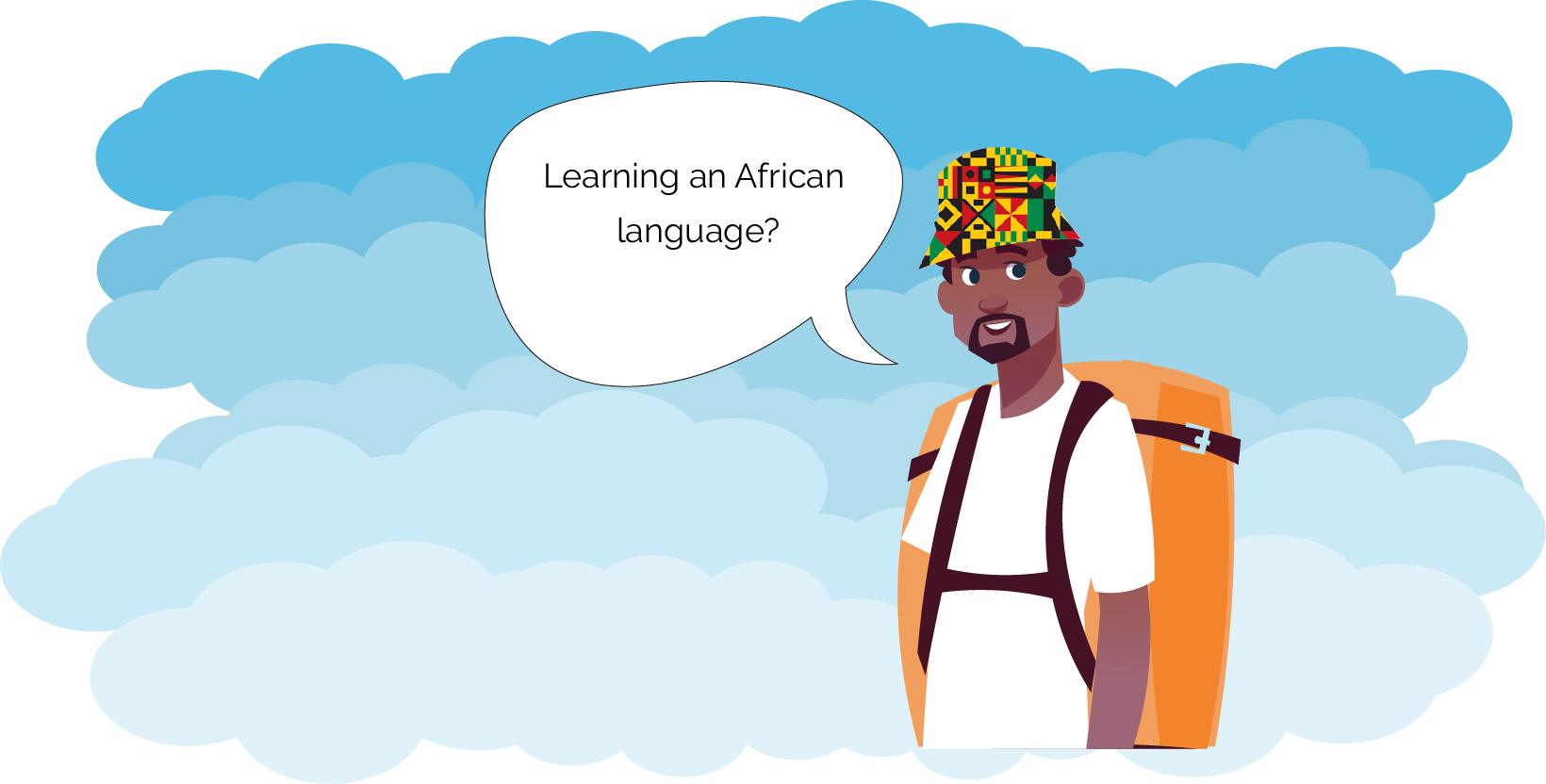3 Ways to Improve Fluency When Learning an African Language
Learning a new language is challenging- especially when the language you are learning is not widely-spoken in your immediate environment. Whether you are learning Twi, Fante, Shona, Zulu, Amharic, Igbo, Hausa or another African language - the strategies below are effective and fun tools to increase fluency.

1. Watch TV!
Watching television, films, music videos, and talk shows in the African language you are studying is a proven language-learning method that can help increase vocabulary, improve listening comprehension, and enhance cultural sensitivity.
To maximize the effectiveness of watching TV to improve your fluency we recommend:
-
Choosing a good movie!
Choose a movie or television show that you will really enjoy. The movie should be engaging enough to keep you hooked over multiple watches.
Luckily for African language learners, the African continent is home to many thriving film industries that produce movies to fit a wide-variety of tastes.
-
Watching, Rewatching, and Rewatching!
Watch each movie or episode multiple times until you are intimately familiar with the plot and characters. Becoming familiar with the plot will allow you to focus on the language. Each time you watch a scene focus on understanding each word spoken by the actors.
Bonus Tip!
Focus on non-verbal communication. Ask yourself: How do the actors communicate meaning through their facial expressions, body language and hand gestures?
-
Maximise your use of the subtitles.
Read the subtitles closely. Critique the translation. Try to identify mistakes. Ask yourself- How have idioms been translated by the subtitling service. Would you have translated things differently?
2. Listen to Music
Immersing yourself in music sung in the languages that you are learning is another effective method of increasing fluency.
The African continent boasts a rich musical heritage and vibrant contemporary music scenes centered on lucrative, influential, innovative music industries.
Throughout the continent, world-renowned artists are creating music in a wide variety of genres often rapping, singing and vocalizing in multiple native and “national” languages in a single song.
To maximize the effectiveness of listening to music to improve your fluency we recommend:
-
Repetition!
Listen to the song or songs again and again and again and again. Listen until you can recite the lyrics by heart.
-
Studying the lyrics closely!
Make sure that you study the lyrics and translations closely. Read the lyrics multiple times- reading first for meaning and then for style.
As you become more familiar with the lyrics, focus on identifying more complex grammar patterns or sentence structures, double entendres, euphemisms or other forms of word-play.
Advanced learners should study the available translations of the lyrics. Ask yourself: Are there mistranslations? Does the translation catch the wordplay of the rap? How are idioms treated?
-
Singing, Rapping and Humming Along!
Singing along can help you improve pronunciation. Sing along to practice making difficult sounds including challenging digraphs, consonant clusters, vowel clusters.
Bonus tip: When singing along to improve your language ability, focus on your pronunciation. Think about they ways in which the rhythm or structure of the song might change the ways that certain words are pronounced.
3. Travel!
Full-blown immersion remains the most effective method for improving fluency. Visiting places where the language is spoken provides unparalleled benefits for language learners. Travel allows learners to deepen their understanding of the ways in which the language is actually used to communicate and connect.
Travel is particularly useful in developing the language learner’s “intuition.” Immersion challenges learners to construct sentences in the local language - rather than thinking in their native languages and translating to the local language.
To maximize the effectiveness of traveling to improve your fluency we recommend:
-
Eavesdropping!
To maximize the benefits of travel for language learning. Open your ears! Listen as much as possible to the conversations happening around you. Whether it be on the public transportation, at the market, or out shopping, pay attention to conversations all around you.
While eavesdropping try to pick up as many words or phrases as you can. Also pay- attention to non-verbal forms of communication. Try to figure out how locals express humor through their bodies and facial expressions.
-
Only speaking in the local language!
When travelling learners should avoid speaking in their native language and attempt to communicate exclusively in the local language. Learners should attempt to “stretch” their knowledge of the local languages vocabulary and syntax as far as it will go.
-
Making Friends!
Flex your language muscles by respectfully engaging with the people around you. Attempting to communicate in the local language is often interpreted as a gesture of good will. Make friends, ask for suggestions places to visit and things to eat and enjoy your visit!
2019 was an especially opportune time to visit the continent. The Ghana Tourism Association has declared 2019 the “Year of Return.”
To commemorate 400 years since enslaved Africans arrived in Jamestown Virginia. The Year of Return involves hundreds of special events, festivals, conferences that make for an especially rich visit. Feeling you may have missed out? No worries. The Government of Ghana has declared a "Beyond the Return" campaign in 2020 as a succeeding initiative the previous year's campaign.
Did you Know?
Dialogue-Africa is a free online application for learning African languages. Our lessons are created from an African Point of View. Learn in a way that is culturally specific and immediately relevant. Beta access for Twi, Yoruba, Swahili & Ga are now available.
Start Learning Now!